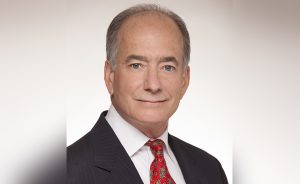I am Michael King, a Senior Director in GVA’s Valuation Consultancy team, and am based in the firm’s Manchester office. I am a Fellow of the Royal Institution of Chartered Surveyors and an RICS registered valuer and accredited expert witness. I am also an RICS accredited Evaluative Mediator and provide alternative dispute resolution mediation services. I lead GVA’s UK expert witness service offer, focusing in particular on training, related expert accreditation and quality assurance. GVA has a UK wide network of surveyors experienced in expert witness work, many of whom are also RICS accredited experts, and who cover the full set of property skill sets and hence potential areas of dispute in real estate in Courts, Tribunals and Inquiries, and alternative dispute resolution arenas, such as Mediation. My personal experience is in property valuation, involving both commercial and residential assets, involving owner occupied, investment and development real estate. I also have a 34-year career long experience in all matters concerning compulsory purchase and compensation. GVA is a top 5 UK property consultancy with a strong regional office network, and offers a comprehensive real estate service throughout the UK through its strong regional presence, and with European, South East Asia/Pacific and North/South America coverage via our global affiliation network of firms under our GVA Worldwide brand initiative.
Have you seen property related disputes change over time? Have there been any particular trends you have noticed throughout time?
In the period following the end of the property boom in 2007 and the recession from 2008, there was a significant increase in professional negligence litigation, much centred on negligent value cases, particularly with banks/lenders taking action against imprudent secured lending valuation advice prepared by valuers. Some of the general excesses of the property boom certainly came home to roost, with some valuers appearing guilty of abandoning prudent valuation practices during the very active transactional market, presumably overly comforted by the upward trend in property asset values. This was mirrored by the insatiable appetite of banks to lend to real estate, which itself underpinned a very significant volume of secured lending valuations undertaken, and which was exasperated by the very active property investment and development market that existed up to the end of 2007.The recession also meant that many stakeholders in property investment and development lost money as economic and property market conditions worsened, or necessarily ceased being able to trade, out of choice, or forcibly from banks calling in loans. This inherently resulted in a greater propensity by parties to seek somebody to blame if possible, leading to an increase in property related professional negligence litigation across the professions generally. It also became apparent that a by-product to some extent of the stresses of the post-recession period, was on a personal level evident in an increase in marital dispute emanating from hardship pressures, and an increase in the need for expert valuer evidence into disputes over asset values, and in particular property assets. As limitation periods on post-recession professional negligence cases have resulted in a diminishing number of recent new cases, and not withstanding lawyers ingenious work in extending those limitation timeframes, there does seem to be an increase in the number of cases currently being taken by former borrowers against bank lenders for consequential losses arising from miss-selling on base rate swap loan products. Similarly, there appears to be an increasing number of cases against lenders or their appointed receivers where action has been taken to foreclose on bad loans, and former borrowers are questioning the actions and conduct in terms of the banks and their appointed advisers in prudently realising optimum property asset value as obliged. There has certainly been some general criticism of the conduct of certain banks in terms of their policies dealing with their bad debt loan book. This cycle of varying types of real estate litigation at any given point in the market cycle is not untypical, and goes hand in hand with the regular broad spectrum of property disputes which is ever present for varying reasons.
How often does the instability of the property market and its economy pose difficulties/ lawsuits for those invested in estate? What advice would you give to those who fall victim to this?
It is clear that the health of the economy and real estate market does have a direct impact on the propensity for particular litigation, and the likelihood of action being taken by key real estate stakeholders. A deteriorating economic and property market dynamic will more likely result in losses being incurred by property investors, speculators and developers, and it follows that there can be a greater propensity to take litigation against professional advisers engaged in real estate advice to endeavour to recover losses, and clearly where fundamentally it is felt the advice has been a contributory factor.
What further considerations must be made for projects which are on a larger scale, and internationally based?
The scale of project can of course influence the inherent make up of a dispute, primarily in terms of a commensurately increased number of key stakeholders being a party to a project, and in terms of the complexity of the project and any related contractual obligations. Combine this with a varying cross border key stakeholder dynamic, which can also enhance the complexity and potential for disputes, as there can be fundamental differences in approach and in terms of output expectations from parties with varying international credentials. To negate the potential adverse factors that might serve to undermine a project, it is again critical to appoint professional advisers who are wise to, and have experience of, these nuances within the context of the project, and can be aware of them from the outset to structure contractual agreements, and deal with varying demands/expectations accordingly.
Aside from remaining objective, what other characteristics do you think accounts towards being a good expert witness?
The ultimate requirement for experts under Part 35 and 25 Civil Procedure Rule and other such protocols, and indeed the RICS guidance to surveyors acting as expert witnesses, is to maintain an expert’s ultimate duty to the Court in preparing and presenting evidence, and obviously not to their instructing parties. This is of paramount importance to the measure of a “good expert witness”, and goes hand in hand with remaining robust against the inevitable pressures from instructing clients to see it their way. Ultimately, any negating of this obligation will likely only disadvantage the client, by likely extending the litigation process and related cost, without enhancing the evidence upon which an acceptable settlement might be attained. However, of equal importance, ultimately is an expert having a thorough knowledge of the subject matter forming the basis of their evidence, and also having a propensity to review opinion if presented with information during the process that warrants it, rather than allowing such matters to ultimately undermine an expert’s position under cross examination. A reluctance to embrace new credible information has the potential to undermine an expert’s overall evidence, and a Court’s opinion of an expert’s standing and credibility. A Court is often faced with two learned experts offering greatly varying evidence and opinion, and in such circumstances, it may be that a more confident presentation and defence of an expert’s evidence under cross examination in contrast to an opposing expert’s less assured performance, may ultimately be the defining factor upon which a Court determines which expert has offered the more persuasive arguments.
Michael King
Senior Director
T: +44 (0)161 956 4008 | M: 07786 020741
michael.king@gva.co.uk | www.gva.co.uk




















